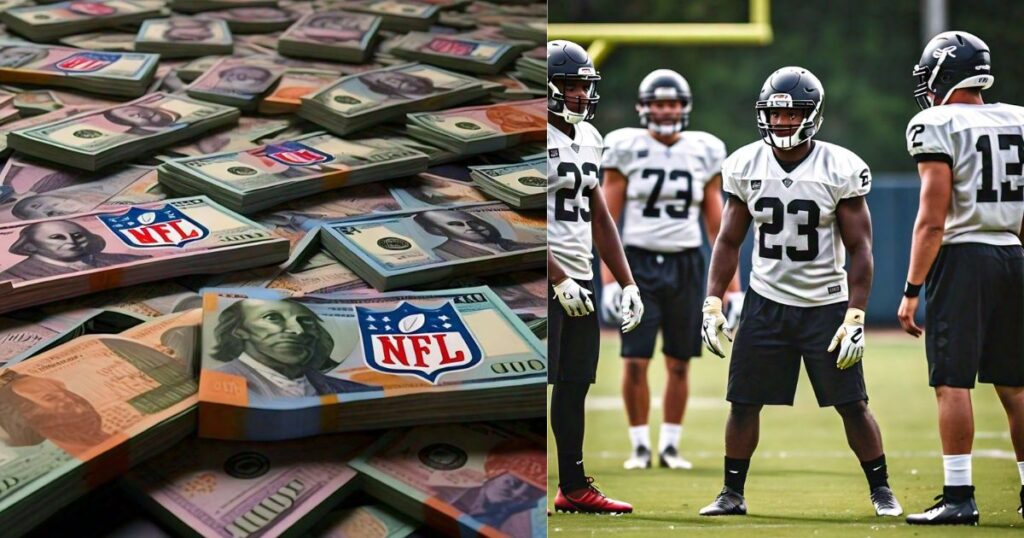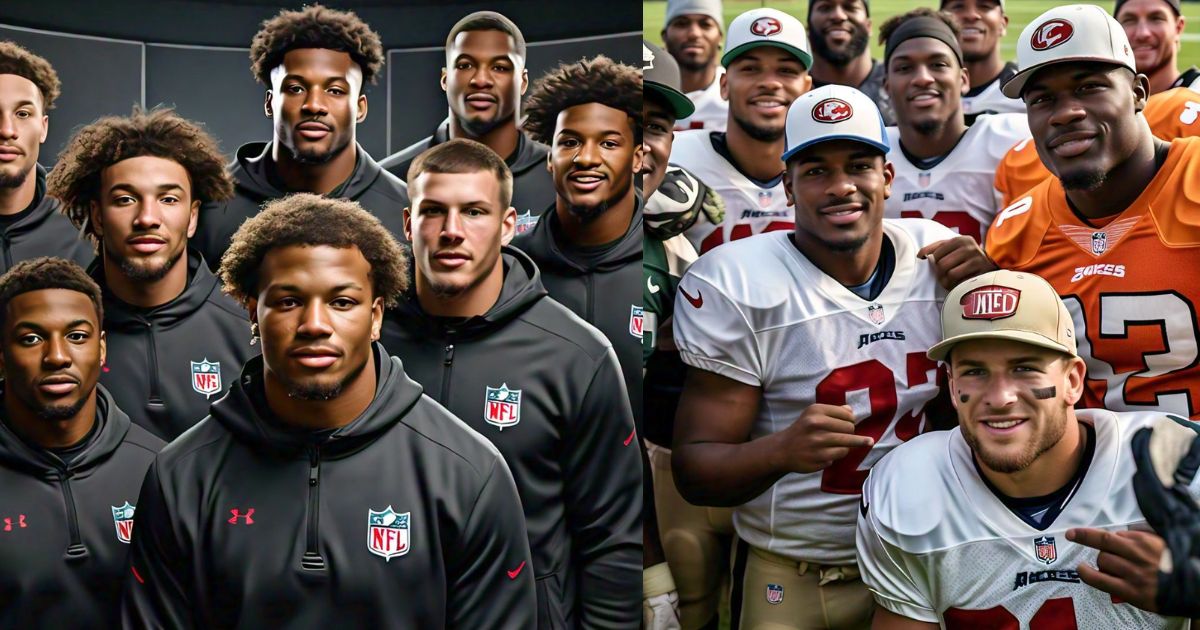While becoming a rookie in the NFL is an exciting success, it can be difficult to understand how rookies get paid in the NFL. A rookie’s salary and total compensation are determined by factors ranging from the draft to contract negotiations.
Let’s explore the important components of rookie contracts, the impact of draft location, and the budgetary challenges rookies face.
Quickly Navigate
The NFL Draft and Rookie Contracts
Rookies’ path to an NFL salary starts with the NFL Draft, where teams choose qualified college players. One important incident that determines how much a rookie will get paid in the NFL.
While later-round picks might need to prove themselves to land big contracts, higher draft picks typically fetch higher salaries and signing bonuses.
The Rookie Wage Scale
The rookie wage scale, which went into effect in 2011, offers a uniform compensation structure based on draft position.
To prevent rising rookie get paid in the NFL and provide a more equitable allocation of team salary caps, this system was implemented.
Each draft slot has a fixed contract value under the rookie wage scale, which makes negotiations easier and guarantees that rookies get paid fairly for their draft position.
Signing Bonuses and Guaranteed Money
The signing bonus is a key component of rookie contracts and is frequently guaranteed get paid in the NFL. A one-time payment known as the signing bonus is given to the player at the time of contract signing.
It is usually the biggest upfront payment a rookie will get, and depending on the position, it can be anything from several thousand dollars for late-round picks to several million dollars for first-round picks.
Parts of the base salary may also be guaranteed in a rookie contract, making sure the player a minimum payment regardless of performance or injury.
Contract Length and Salary Breakdown
Rookie contracts normally last four years, and the salary distribution is dependent on the position and draft round.
For most players, the length of the contract is set, but first-round picks can opt for an additional year.

Rookie get paid in the NFL consists of base pay, signing bonus, and possible performance-based incentives. Every year of the contract sees an increase in the base salary, giving the player financial growth as they advance.
Performance Incentives and Bonuses
Rookies have the opportunity to help with their base pay with bonuses and performance incentives.
These bonuses are intended to recognize players who succeed in specific areas, like hitting particular benchmarks, getting selected to the Pro Bowl, or helping the team win a championship.
A rookie’s income can be greatly increased by performance incentives, which will encourage them to perform well on the field.
Financial Considerations and Management
For novices, handling their newly acquired wealth can be difficult, so financial preparation and guidance is essential.
Since many newcomers originate from low-income families, they might not have much experience managing big sums of money.
When it comes to helping beginners with money management, smart investing, and long-term financial security planning, financial advisers and agents are invaluable.
Rookies run the risk of making poor financial decisions without the right direction, which can have long-term effects.
The Role of Agents and Negotiations
When it comes to rookie contracts and making sure their clients get paid fairly, agents are necessary.
Serving as a go-between for the player and the team, they use their understanding of the rookie salary scale and the market to negotiate the best feasible agreement.
In addition to offering insightful guidance on financial planning, career advancement, and sponsorships, agents also aid newcomers in navigating the professional sports scene.
Read more: What Family Had the Most NFL Players?
Notable Rookie Contracts
An analysis of notable rookie contracts can shed light on the disparities in compensation and benefits.
For instance, the first overall pick in the 2021 NFL Draft, Trevor Lawrence, accepted a contract that contained a substantial signing bonus and a sizeable amount of guaranteed money.
Tom Brady and other later-round picks, on the other hand, had to prove their value on the field to receive large contract extensions.
These case studies highlight how rookie earnings are impacted by draft position and performance.
Final Note
Acceptance rookies get paid in the NFL structure reveals the complex interplay among skill, bargaining power, and league rules.
The starting salary structure for rookies, signing bonuses, performance-based rewards, and the involvement of agents all influence their financial situation.
Planning and money management are crucial for rookies starting their professional careers to secure long-term success on and off the field.
Rookies can guarantee their financial future and optimize their profits by managing through these complications.










